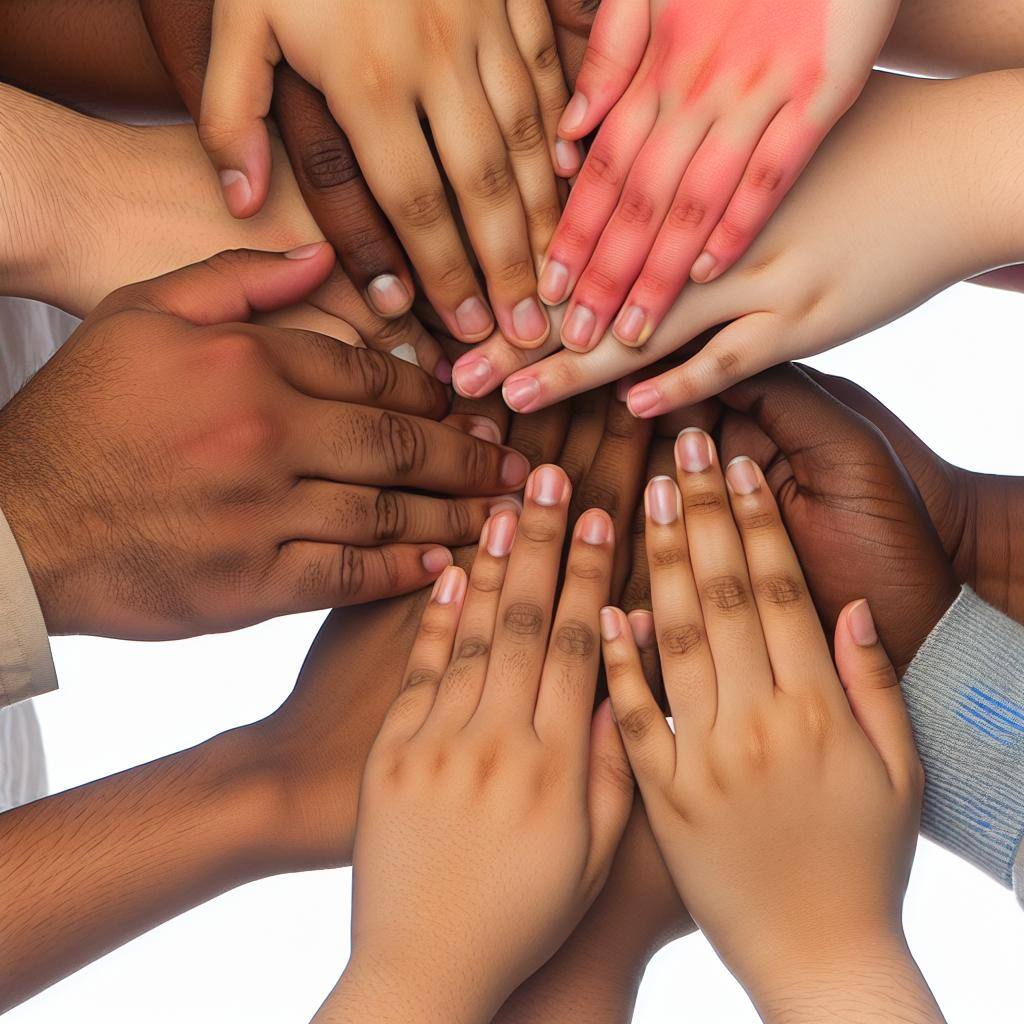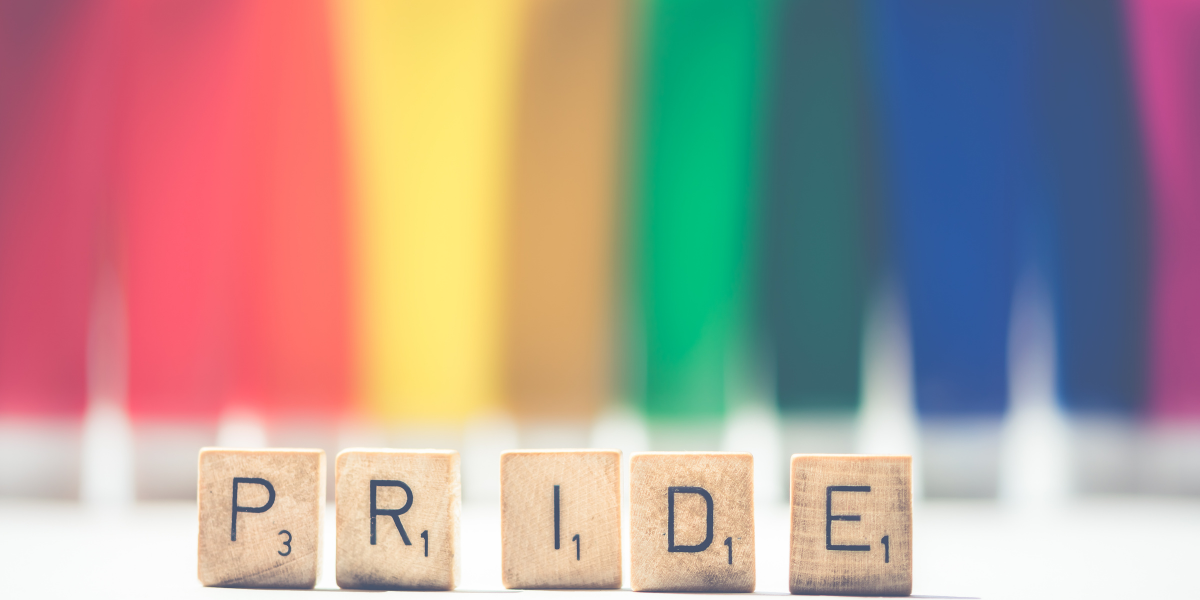1 min read
National Minority Mental Health Month with KDH Counseling
July is recognized as National Minority Mental Health Month, a crucial time to spotlight the unique challenges and resiliency within minority...
7 min read
Isla Turner, MS, PLPC : Jul 3, 2024 8:30:16 AM

What are the necessary mental health needs of BIPOC individuals and strategies for providing culturally competent support and practical resources?
Supporting Black, Indigenous, and People of Color (BIPOC) is not only crucial in promoting mental health and well-being but also in creating a more inclusive and equitable society. The intersectionality of race, culture, and identity needs to be addressed when working with BIPOC individuals to improve all dimensions of wellbeing. Communities of color live with challenges stemming from historical and ongoing systemic barriers, leading to poorer rates of mental health outcomes. By providing culturally competent support and resources, we hope to reduce barriers that prevent BIPOC individuals from thriving in both personal and professional lives.
Cultural competence goes beyond just acknowledging the diversity within BIPOC communities; it requires a deep understanding of the historical and systemic factors that have shaped their experiences. By recognizing the impact of systemic racism, discrimination, and oppression on mental health, we can tailor our support in a way that is not only effective but also empowering. This entails establishing a safe and welcoming environment where individuals feel heard, validated, and understood. By approaching support with cultural sensitivity and respect, we can build trust and rapport with people from all walks of life, ultimately leading to positive outcomes in one's mental wellness journey.
BIPOC communities encompass a rich tapestry of individuals from diverse racial and ethnic backgrounds. Embracing and honoring these elements is paramount when offering mental health support. Each community brings forth its own distinct experiences, strengths, healing practices, cultural norms, obstacles, and resilience that deserve careful consideration and acknowledgment. Having a therapist attune to these differences is essential to feeling heard and understood.
Your therapist should be stirred by curiosity as evidenced by use of Culturally Competent Motivational Interviewing, Cultural Formulation Interview (CFI), and/or use of the ADDRESSING model. These tools guides us as therapists to practice active listening skills and delve deep, gaining valuable insight and offering feedback that truly centers on the entirety of your (the client's) being. You, the client, are encouraged to enlighten us on how your identity is formed and influenced. The therapist should be aware of how ethnocentrism impacts their perception of others, their anticipation of their clients needs, attunement with the client, and interpertation of client presentation (diagnoses). Oxford dictionary defines ethnocentrism as the, "evaluation of other cultures according to preconceptions originating in the standards and customs of one's own culture." Furthermore, a clinician should consider the impact of intersectionality on current functioning.
Intersectionality, a term coined by Kimberlé Crenshaw, emphasizes how overlapping identities can shape one's experiences and influence one's mental health. For instance, a person who identifies as both Black and LGBTQ+ may face challenges related to discrimination, stigma, and societal expectations that impact their mental well-being in distinct ways.
Normalizing the intersectionality of identities within BIPOC communities allows your clinician to tailor treatment approaches thus allowing for the development of effective treatment plans and improved mental health outcomes. This comprehensive and inclusive viewpoint empowers you and cultivates an environment where you feel validated, heard, and honored in every facet of your identity.
Assessments can be a valid and ethical approach to beginning the conversation and understanding the impact of life experiences on current functioning.
Identity:
Trauma:
The mental health of BIPOC individuals is deeply intertwined with a complex web of social, emotional, and cultural factors that shape one's experiences and well-being. Social factors, such as systemic racism, discrimination, and unequal access to resources, can have a profound impact on mental health outcomes, leading to heightened levels of stress, anxiety, and depression. By tackling these entrenched systemic issues, we have the power to cultivate a society that is truly supportive and fair, one that prioritizes the mental well-being of every individual.
BIPOC individuals carry the weight of stigmas, generational trauma and navigating systems of oppression.
The emotional burden of racial trauma is not just an individual experience but a collective one, passed down through familial experiences and historical injustices.
Studies indicate that while mental health and physical health conditions affect all communities at similar rates, BIPOC individuals often receive inadequate care, resulting in poorer outcomes.
Moreover, cultural factors play a significant role in shaping the mental health landscape of BIPOC communities. The influence of cultural norms, values, and beliefs adds a layer of complexity that must be acknowledged and respected when providing support. By delving into the intricacies of these cultural factors, we as therapists can offer a more holistic and culturally competent approach that truly honors the diverse identities and experiences within BIPOC communities. For example, a clinician in America working with a client that makes minimal eye contact may assume a person has trauma, anxiety, or struggles with assertive communicating. A curious clinician might "notice" (verbalize observation) and allow the client to explain the context of the behavior. This approach afford them the opportunity to learn that in some Asian cultures making direct eye contact is rude and averting their eyes shows the clinician respect.
Recognizing the significance of cultural norms allows us to understand how you navigate your mental health within the context of your cultural heritage. By honoring these norms, we establish a supportive environment where individuals feel validated and heard, fostering a sense of trust and openness in the care you will receive. Embracing the diversity of cultural traditions within BIPOC communities not only encourages inclusivity but also empowers you to embrace your identity authentically and completely. It is through this cultural lens that we can truly make a positive impact on the mental well-being of our BIPOC clients.
As a BIPOC individual, you are subject to ongoing inherit bias, systemic racism, and discrimination leading to reinforced existing disparities across fields of health. These pervasive social challenges create a hostile environment where lots of individuals encounter micro-aggressions, limited access to culturally competent helping professionals, inadequate resources and institutional barriers that contribute to heightened levels of stress, anxiety, and depression. It is crucial to actively address and dismantle these systemic issues to foster a more just society where BIPOC individuals can thrive and achieve optimal mental wellness. Here is an example from Think Cultural Health "Loud and expressive speech is often more common in African American, Caribbean, Latino, and Arab cultures.African American, Caribbean, Latino, and Arab cultures. Whereas, Some American Indian cultures, Alaskan native, and Latin American indigenous cultures favor softer tones of voice and less expressive speech, as do some East Asian cultures." Now based on ethnocentrism
By recognizing and addressing the intersection of these various factors, we can develop strategies that holistically support the mental health and well-being of BIPOC communities.
This involves fostering inclusive spaces where you feel valued, heard, and experience felt safety (when your entire being, conscious and unconscious knows you are safe).
To find such environments, it is important to actively seek diversity, equity, and inclusion in your therapist's office. Find a place that prioritizes equity and social justice.
In addition, it is important to find spaces where you can express your identity, experiences, and perspectives without fear of judgment or discrimination. This can be achieved through therapy, and through community events, support groups, and cultural celebrations that celebrate and honor the diversity within BIPOC communities.
BIPOC individuals frequently encounter distinct stressors and obstacles that can significantly affect mental well-being. It is essential to cultivate coping mechanisms and enhance resilience to effectively navigate these challenges.
Encouraging coping strategies like mindfulness, self-care, and seeking social support can provide you with the necessary skills and tools to navigate stress and adversity effectively. Mindfulness practices, such as meditation and deep breathing exercises, can help BIPOC individuals ground themselves in the present moment, fostering a sense of calm and clarity amidst life's challenges. Self-care activities, such as engaging in hobbies, practicing gratitude, and prioritizing rest, can replenish your mental and emotional reserves, enabling you to better cope with stressors.
Furthermore, seeking social support from trusted friends, family members, or mental health professionals can offer a valuable outlet for expressing emotions, processing difficult experiences, and receiving guidance. Building a strong support system that understands and validates the BIPOC experience can provide you with the encouragement and reassurance they need to navigate adversity with resilience and grace.
Strengthening resilience entails cultivating the capacity to overcome setbacks and navigate challenging situations with flexibility. This can be accomplished by nurturing a robust support system, fostering a positive outlook, and honing problem-solving abilities. Developing a growth mindset that views challenges as opportunities for growth and learning can empower BIPOC individuals to adapt to adversity with resilience and determination in one's own unique and individualized way. This is explored through each person's values, strengths, and interests.
There are various resources available that can provide culturally competent support and guidance to BIPOC individuals seeking to prioritize mental wellness. These resources encompass a wide range of services and tools, including culturally tailored therapy services, support groups, online forums, and mental health hotlines specifically designed to address the needs and experiences of BIPOC communities. Additionally, community organizations, advocacy groups, and non-profit agencies often offer workshops, seminars, and educational resources focused on mental health and well-being within BIPOC populations.
Community organizations and support groups are also valuable resources for BIPOC mental health. These organizations often provide a safe and inclusive space for you to connect with others who share similar experiences.
Online platforms and mobile applications dedicated to mental health and self-care provide a wealth of information, resources, and tools tailored to the specific cultural backgrounds and identities of BIPOC individuals. These digital resources offer a convenient and accessible way for you to access support, guidance, and coping strategies.
Promoting mental wellness within the BIPOC community is essential for creating positive change and addressing your mental health needs.
One way to promote mental wellness is by raising awareness and reducing the stigma surrounding mental health in BIPOC communities. This can be done through attending therapy at KDH Counseling or any other clinic. There is power in owning your own needs and seeking assistance. This practice can change your own views of your mental health by teaching you about this integral subject.
By promoting mental wellness within the BIPOC community, we can create a society that prioritizes mental health for all individuals, regardless of race or ethnicity.

1 min read
July is recognized as National Minority Mental Health Month, a crucial time to spotlight the unique challenges and resiliency within minority...

Explore the various mental health resources and support available for the LGBTQIA community to empower their mental well-being.

Life and daily tasks, seems impossible when you face the challenges of depression, a condition that affects millions worldwide. With a wealth of...